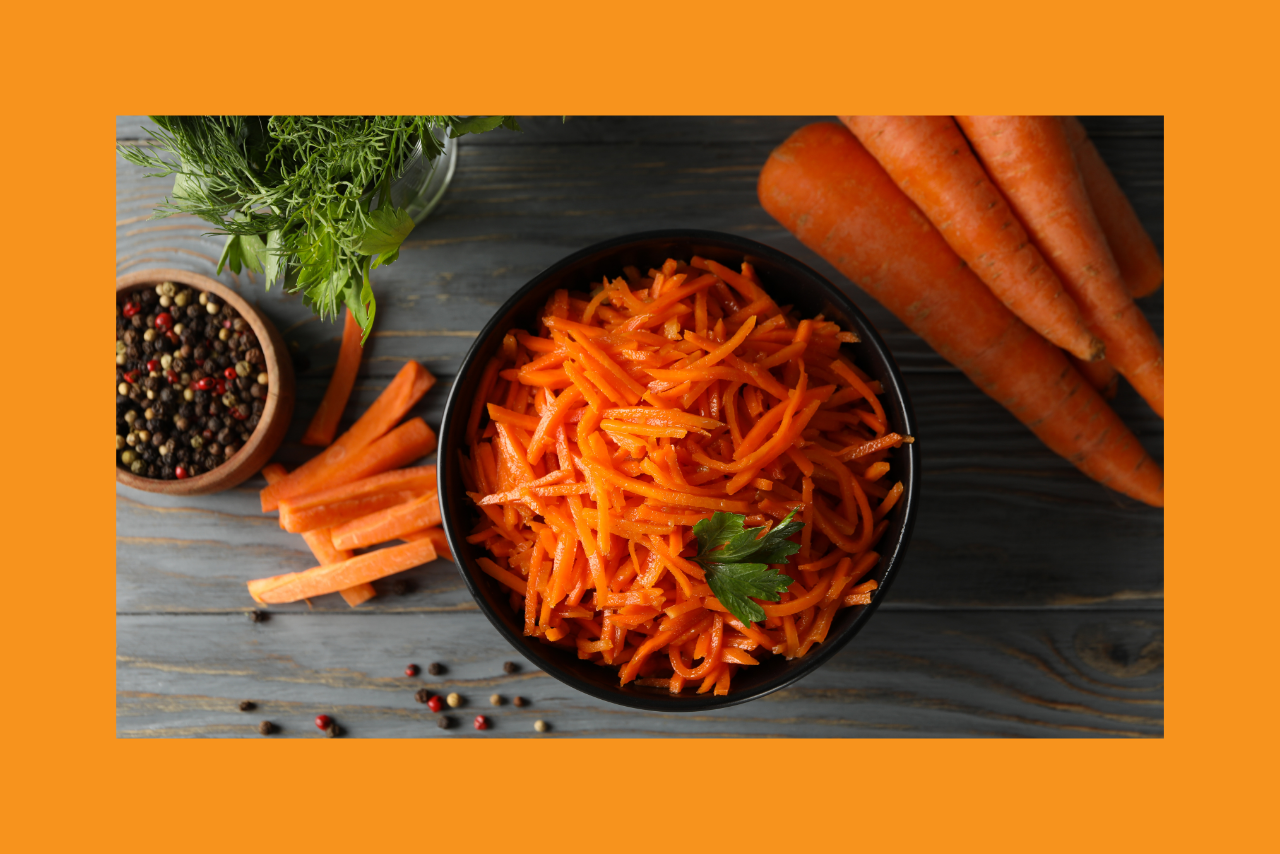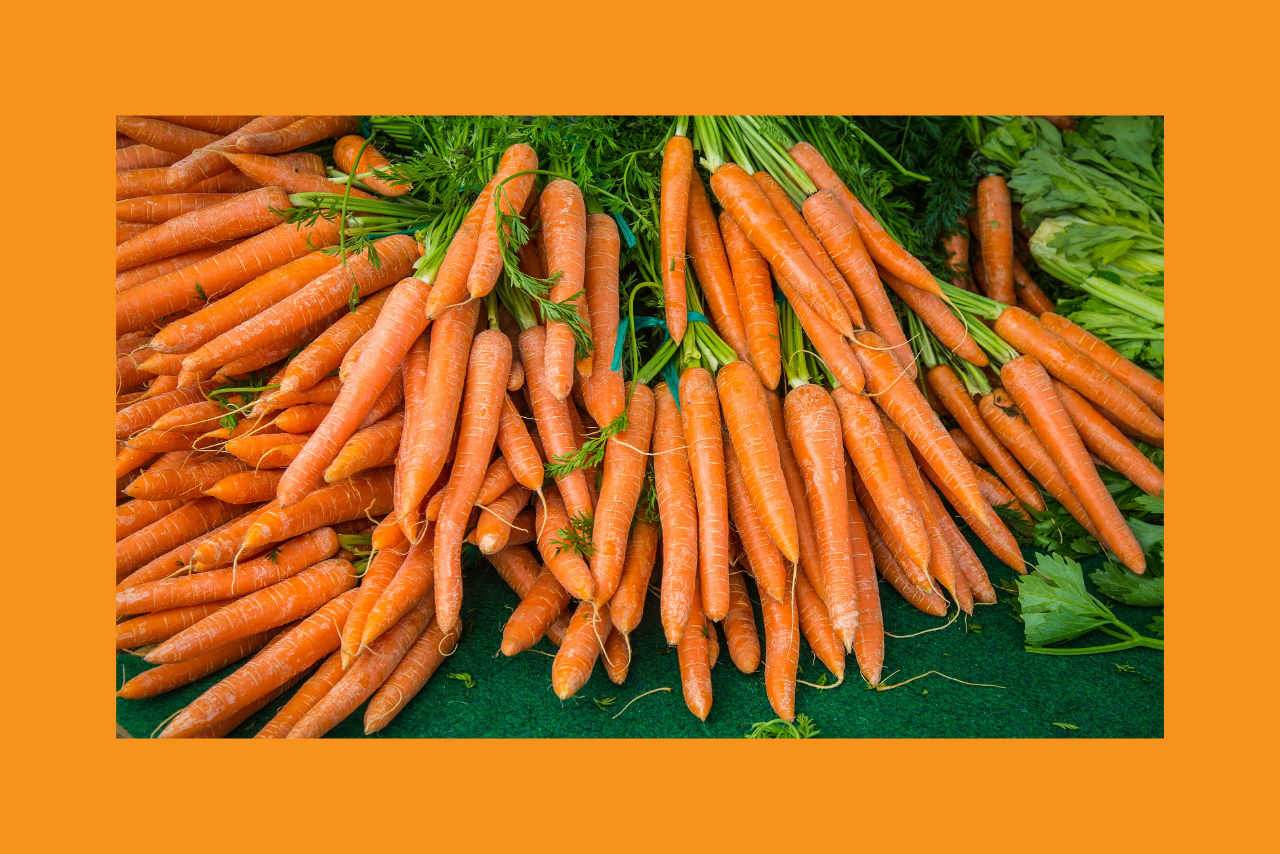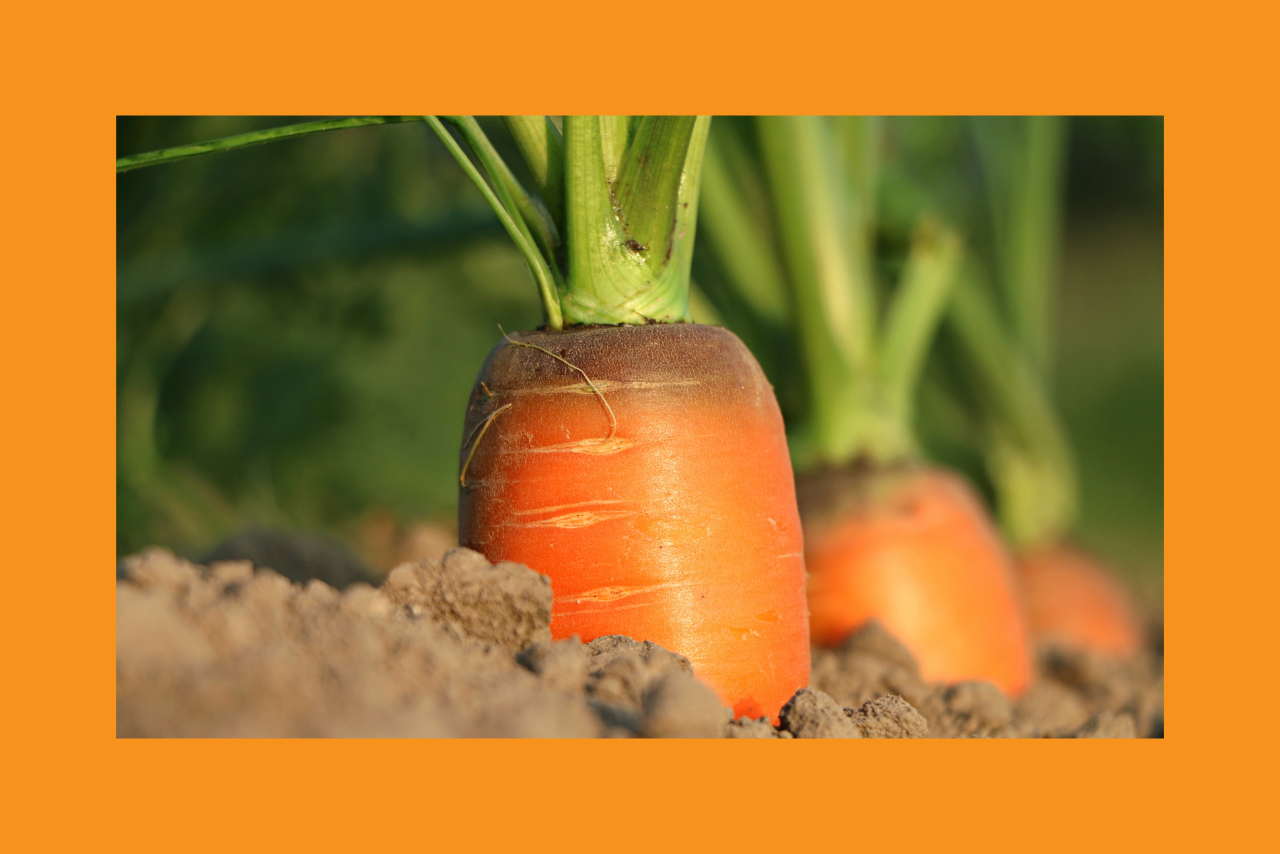Carrot Day
X
Carrots are one of the staple vegetables cultivated in Poland, ranking third in terms of cultivation area after cabbage and onions (12% of the total vegetable-growing area). They are consumed year-round in fresh form—as bunch carrots—as well as processed into canned goods, frozen vegetables, and juices. Thanks to their taste and nutritional value, carrots have a wide range of culinary uses.m i wartościom odżywczym znajduje szerokie zastosowanie w kuchni.

Carrots are extremely rich in beta-carotene (provitamin A), which supports vision, promotes healthy skin, and strengthens the immune system. They also contain vitamins B, E, H, K, and PP, as well as important minerals such as iron, phosphorus, magnesium, calcium, and potassium. The presence of pectins supports digestion, making carrots a popular component in therapeutic diets, including for infants and people with digestive issues. The energy value of 100 grams of carrots is approximately 33–35 kcal.
An interesting fact: raw carrots provide less absorbable beta-carotene than cooked ones. When thermally processed—especially with a bit of fat (e.g., olive oil)—carrots allow for better absorption of this valuable nutrient.
Climate, Soil, and Nutrient Requirements
Carrots have relatively low heat requirements and grow well throughout Poland. They can grow in temperatures ranging from 5°C to 35°C, but the best roots form at 15–21°C, with the optimal temperature being around 18°C. Too high temperatures (above 25°C) reduce yield and quality, while too low temperatures (12–13°C) result in longer, thinner roots. Carrot seedlings can withstand frosts down to -10°C, but mature roots will freeze at just -2°C.


Fun Facts About Carrots
- Carrots originated in Persia, where they were originally grown for medicinal rather than culinary purposes.
- There are over 100 carrot varieties in various colors, including purple, yellow, white, and black. The now-common orange color became popular only in the 17th century in the Netherlands.
- Carrots contain natural antioxidants that help protect cells from damage and slow the aging process.
- During World War II, British pilots were said to eat large quantities of carrots to improve night vision—this was mainly propaganda, although beta-carotene does support eye health.
- Thanks to their health benefits and versatility in the kitchen, carrots remain one of the most important vegetables in our daily diets. Choosing organic carrots helps ensure maximum nutritional value while minimizing the intake of harmful substances.
Dzięki swoim właściwościom zdrowotnym i szerokiemu zastosowaniu w kuchni, marchew pozostaje jednym z najważniejszych warzyw w codziennej diecie. Wybierając ekologiczną marchew, możemy cieszyć się jej najwyższą wartością odżywczą i minimalizować spożycie szkodliwych substancji.

